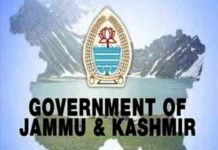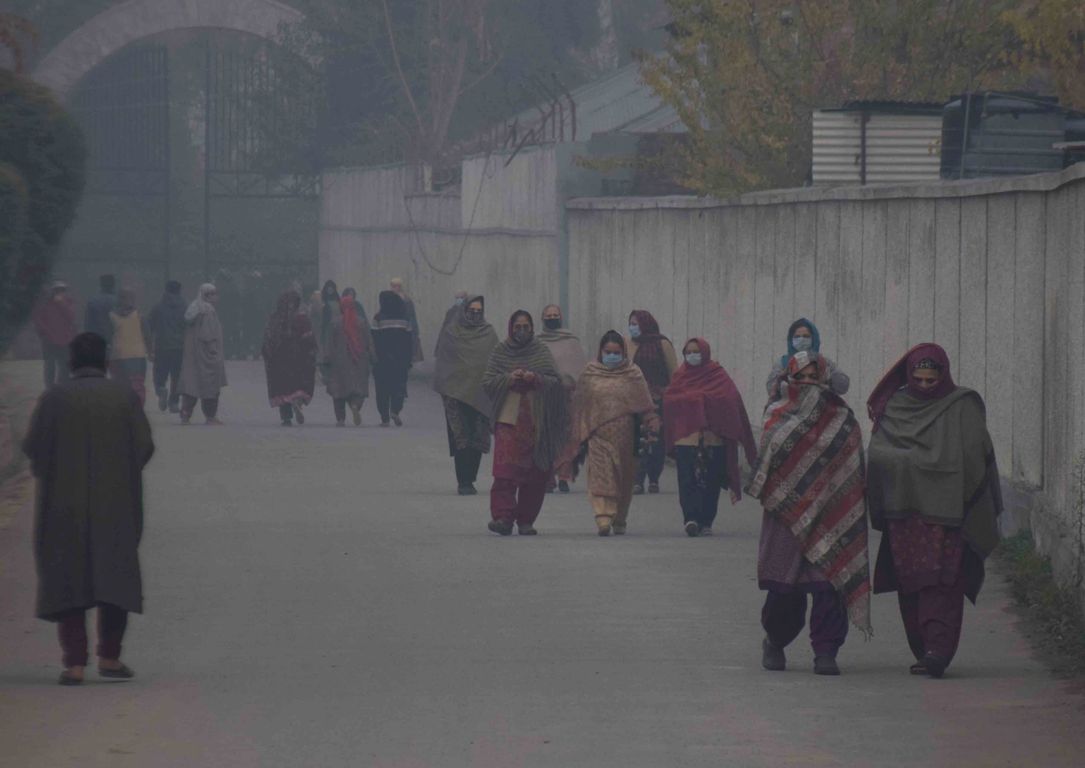Tasavur Mushtaq
Srinagar
Terming the past practice of spending around 20 percent of the total capital expenditure in the last month of the fiscal year, i.e. March, a ‘March Madness’, Finance Minister Dr Haseeb A Drabu in his fourth budget speech said that is part of history now.
Claiming that the system building he started since 2015 has a positive impact, Dr Drabu said the biggest proof is that perhaps for the first time in the budgetary history of J&K, the revised estimates for the current year are much better than the budget estimates that I had presented last year.

Giving details he said the “three numbers stand out: tax revenues were estimated to be Rs. 9,931 crore. These have been exceeded and in the process, we have crossed the Rs.10,000 crore mark of own tax collection. Second, I had estimated an unfunded resource gap of over Rs. 3,000 crores. As the year comes to an end, I have a surplus of more than Rs. 1,300 crore. Third, the fiscal deficit which is regarded to be the single most important indicator of fiscal performance was estimated at around 9.5 percent but has actually turned out to be around 5.7 percent; an improvement of nearly 400 basis points. This is unprecedented.”
Saying though the figures accord professional pride, but the job satisfaction comes from the fact that because of a well-run financial setup. “We are able to take decisions that change lives for good, especially for the most vulnerable and marginalized,” he said.
While talking about the wages of working class, he said the minimum wages of the working class substantially have been increased substantially. “The minimum wages of unskilled workers were raised from Rs. 150 to Rs. 225, while those of skilled labour to Rs. 350 from Rs. 225. A new category of highly skilled worker was introduced and Rs. 400 was fixed as the minimum wage.”
A trained economist, Dr Drabu said “this week we have woven a social security net around the poorest of the poor; the construction workers. We have insured their lives, protected them against disability, disease and death, provided for their children’s education and given them access to small credit.”
Being the first state to have pre-poned budget, Dr Drabu said “an early budget combined with a new system of releases – all monies were released on the 10th and 11th of February, 2017 – along with the strict discipline of no re-appropriation after December 31, 2017, has resulted in more than 50 percent of the outlays being spent by December 31st, 2017.”
In his speech, Dr Drabu reminded the House about the liability part of the government.
“The House would recall that when I took over as the Finance Minister, there were huge departmental liabilities, in particular, the accumulated power purchase liabilities. We had liabilities of more than Rs. 11,000 crores of which Rs. 7,000 crore were of power and Rs. 4,000 crore across all departments. Worse still, many bills had been pending for months at the treasuries for want of liquidity.”
In the present circumstances, he said there is the huge difference. “Today, the departmental liabilities have come down to just Rs. 600 crore or so of works done and power purchase liabilities have been reduced to a little more than Rs. 3,000 crore. While even this is not acceptable, the good part is that both these liabilities are covered by resources in sight; power bonds to defray power liabilities and a surplus of Rs. 1,319 crore to more than cover up the work done liabilities.”
“Though we could have used the resource surplus to increase our expenditure or cash balance position, I have decided to use it to clean up the archaic system of off-budget liabilities in the form of hundis. This should liquidate our deferred liabilities giving us greater flexibility in liquidity management,” he added.
Terming the situation as improved fiscal management, Dr Drabu said in 2014-15, for instance, the Government was incurring Rs. 5.62 as overheads on Rs. 1 of core developmental expenditure and in 2017-18, the overheads per unit of developmental expenditure has come down sharply to Rs. 1.70. “Even though this has to be rationalised further, there can be no better indicator of an improved fiscal management,” he said.
Dr Drabu argued that “This year, we have removed this last vestige of distortionary fiscal arithmetic from our budget. With this done, let me assert that this Budget is by far the most transparent and technically correct budget presented to this House. Underlying this change is a robust system of public finance management that has now been built.”
Dr Drabu had an emphasis, he said: “with the budgetary edifice in place, now is the time to consolidate the fiscal and budgetary reforms at the departmental level for sustained and self-generating efficiency gains.”















